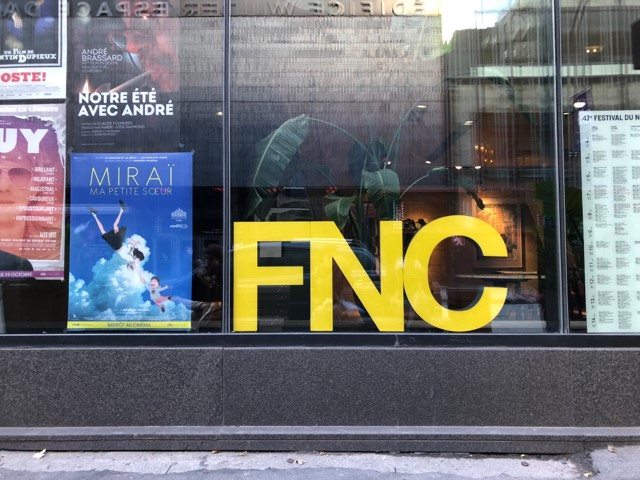If Beale Street Could Talk (Barry Jenkins) – Jenna Benchetrit
With his Moonlight follow-up If Beale Street Could Talk, Barry Jenkins does it again, spinning James Baldwin’s heartbreaking novel into a gorgeous, timely piece of cinema. He does so with a steady hold on two narratives: Beale Street is at once a romantic drama about Tish and Fonny, their life as a young couple unfolding in tender flashback, as well as a clear-eyed procedural that follows Tish and her mother Sharon as they try to absolve Fonny of a false rape charge.
Beale Street is bathed in soft reds, foamy greens and pale yellows, the perfect backdrop for Nicolas Brittell’s stirring musical score. The film’s physical beauty is matched only by that of its story, which can coax anger in one scene with as much ease as it can with joy in the next. This is in no small part thanks to Jenkins’ dreamlike close-ups, which resonate far long after the screen has gone dark.
Though the subject matter is difficult and complicated, Beale Street handles two pressing social matters — mass incarceration and sexual assault — with tenderness and understanding. The performers, especially leads Kiki Layne and Stephan James, make us ache for their suffering characters, the glass partition between them a reminder of their uncertain future. This stunning portrait of romance, humanity and injustice deserves your attention.
Grass (Hong Sang Soo) – Jacob Klemmer
When you’ve only seen one film by Hong Sang Soo, it may seem insignificant and anti-dramatic. It’s only after around four or five films that your eye has been trained to follow the subtle gestures and moods that Hong worships and you understand the significance and drama within his ostensibly ordinary scenarios. Nothing could seem less vital, on the surface, than Grass, an hour-long film about Kim Min Hee sitting in the corner of a cafe, overhearing conversations between strangers. Indeed, Grass should not be your first film by Hong (for that, look to Right Now, Wrong Then or The Day After) but if you’re already on his wavelength, this picture is pure catnip.
For instance, Hong shoots all these conversations in two-shots, sometimes zooming into one person’s face but never cutting to a close-up (one of those subtle gestures he loves). There is bombastic, epic classical music playing in the cafe over these quotidian chats, almost like the diegesis itself is clowning Hong for making this film. These conversations mostly revolve around a few common subjects: romance, career pursuits, the suicide of mutual friends, but every conversation eventually comes back to Hong’s principal question: how well do these people really know each other? When considering that question, this film emerges as one of his most subjective and emotional films.
Burning (Lee Chang Dong) – Jenna Benchetrit
Lee Chang-Dong’s Burning, acclaimed on the festival circuit this year, is a contradiction: a rare slow burn that chills to the bone. Burning tells the story of young Jong-Su, a poor farmer in South Korea whose loneliness is briefly eased when he reconnects with Hae-Mi, a childhood schoolmate. But when Hae-Mi starts a relationship with Ben, an enigmatic city boy, Jong-Su spirals into an obsessive fit of resentment that ultimately clouds into tunnel vision.
Burning is magnificent for many reasons. For one, it’s a thoughtful meditation on class, specifically how class lends itself to isolation; Jong-Su’s rural, low socio-economic standing makes him feel inadequate next to Ben’s opulent lifestyle. It also poses questions about possession in conjunction with gender, dwelling on the consequences for women like Hae-Mi, who are too often caught in the crossfire of masculine entitlement.
For one, it’s a thoughtful meditation on class, specifically how class lends itself to isolation; Jong-Su’s rural, low socio-economic standing makes him feel inadequate next to Ben’s opulent lifestyle.
Simply put, this is the kind of film that takes you somewhere entirely unexpected but leaves you reeling from the brunt of its conclusion. The three lead performances strike each other like lightning pinballs, crafting a disturbing portrait of tension and distrust in the 21st century. Burning is certainly one of my favorite releases this year, and one worth experiencing in a theater if you get the chance.
The Sisters Brothers (Jacques Audiard) – Jenna Benchetrit
The Sisters Brothers has two brothers with the last name Sisters. It has a truly stomach-churning scene involving a pregnant spider. It has a post-Nightcrawler Gyllenhaal/Ahmed reunion. It has John C. Reilly using a toothbrush for the first time. And it’s got a lot of genuine male companionship, which is really nice to see in a Western!
The film is set — when else — during the California Gold Rush, and it follows the titular characters (Joaquin Phoenix and John C. Reilly) as they venture through Oregon and California in search of a chemist (Riz Ahmed) who has discovered a coveted formula that their boss wants. But the chemist has gone on the run with a detective (Jake Gyllenhaal) who’d been assigned to follow him, so a lot of gunfighting and manhunt shenanigans ensue.
The film is frequently entertaining, if not always captivating, and most of its strength lies in the great comedic chemistry between Phoenix and Reilly as hitmen siblings whose reputation precedes them. The unpredictable final 30 minutes are a cautionary tale of blind greed that almost make up for some just-okay writing. It’s a fun movie, but if you’re looking for a great contemporary Western set during the Gold Rush, opt for Meek’s Cutoff instead.
Graves Without a Name (Rithy Panh) – Jacob Klemmer
Graves Without A Name follows Cambodian documentarian Rithy Panh, as he uses spiritual tactics to locate the resting places of the victims of the authoritarian communist army Khmer Rouge to bring peace to their living family members. His previous documentary about this subject, The Missing Picture, sits among the greatest documentary films of all time, boldly merging claymation with archival footage. In this film, Panh takes a step further and attempts to synthesize meditative, abstract montages of ghosts, old photographs, rivers and trees, with traditional talking-head interviews with survivors and perpetrators of the Khmer Rouge.
But it’s not a synthesis that totally succeeds: both segments are captivating in isolation (the montages in particular are spectacular, and could have carried the whole film) but they interrupt each other rather than complimenting each other like they did in The Missing Picture, and a voiceover (in French, for some elusive reason) drives a further wedge between the film’s meditation and its messaging. It’s not entirely working, but it’s entirely worthwhile.
The Image Book (JLG) – Jacob Klemmer
I was once at a film festival where someone asked if I’d seen The Image Book. I told them I had and they asked me what I thought, so I was honest: “well, it was super weird.” They nodded, looked at me knowingly, then said: “c’est Jean-Luc!” And that is basically the only way to describe this movie: it’s extremely Jean-Luc (and I kind of love that French people talk about Godard like they know him personally). The Image Book is an experimental documentary essay film from the curmudgeonly French master about turmoil in the Arab world, the origins of the written word, Capitalism, trains, and a bunch of other French Philosopher Fetish Objects.
The film’s hyperactive cadence keeps you mesmerized even if the existentialism doesn’t: murmured narration and text intersperse with found footage (from cartoons, classic westerns, French Dramas, and, somehow, Michael Bay films) and strobe-like, ultra-saturated visuals, with fragmented looping music and sound mixing that’s as stereoscopic as the 3D in Goodbye To Language. It’s best not to think about whether Godard is trying to satirize the orientalism with which we treat the Muslim world or whether he’s taking it seriously. Whether you enjoy this film will likely depend on your tolerance for bafflement, wondering whether Godard is joking, and wondering if he made this film just to put you off. Frankly, I’m not even sure where I’d draw that line.
Ash Is Purest White (Jia Zhangke) – Jacob Klemmer
Qiao, played by Zhao Tao, is the girlfriend of gangster Guo Bin (played by Liao Fan), the kingpin of a gang operating in the depressed, northern Chinese town of Datong. She is full of energy and life, fierce and completely independent, but willing to fire a gun to save Bin from a gang of rival bikers, and willing to take the fall for him and serve five years in prison. Once she gets out, she is faced with a different Bin, a different sense of herself, and also a different China. This epic film, which spans seventeen years and sixteen thousand kilometres, spans an even greater distance by never leaving her side. This is, without a doubt, the best lead performance of the year.
That description, coupled with apt adjectives like ‘epic,’ ‘monumental,’ and ‘novelistic’ make Ash Is Purest White sound just a bit exhausting. Instead, the film teems with humour and life, sweeping you up with both its tender story and Zhangke’s masterful filmmaking. The opening act is dazzling, sweeping up the viewer in handheld, quickly edited gangster antics, martial-arts motorcycle brawls and dance sequences (set to, of all things, Village People’s YMCA) but after this opening, the film settles into a more subtle mode of filmmaking. There is a scene between Qiao and Bin in a hotel room that is staggering, every word of dialogue, movement by the characters in and out of frame, pan of the camera, and beam of light coming into the hotel is perfectly placed. It goes to show that Jia Zhangke and Zhao Tao are two of the most vital and virtuosic film artists of the 21st century.
This is part 1 of the FNC review. For part 2, click here.








